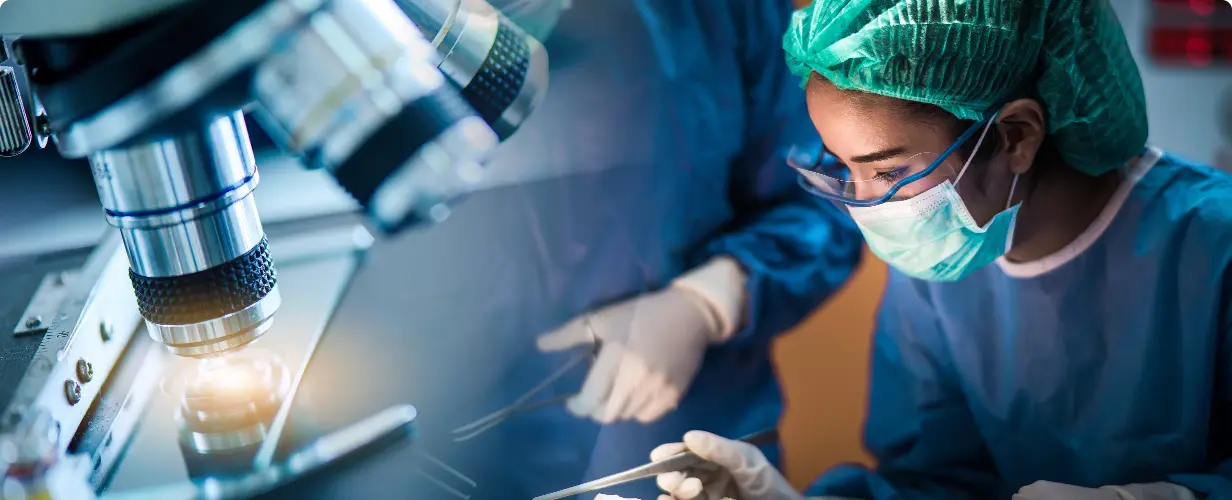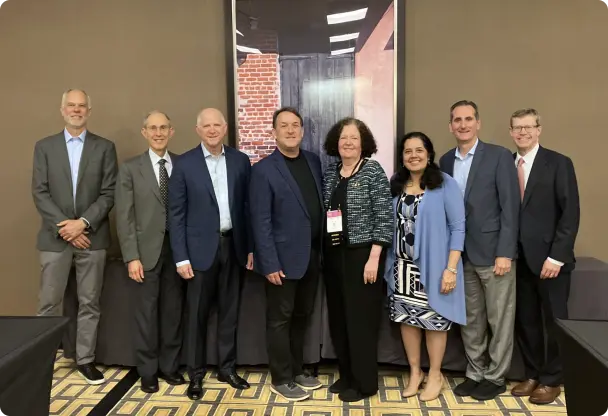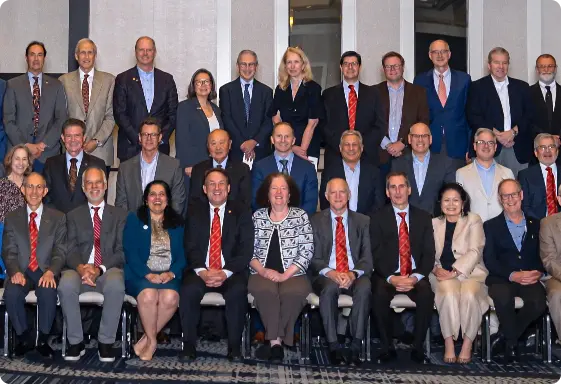About AOS
Vision + Mission
Vision:
The American Otological Society, a global association of preeminent physicians, surgeons, scientists and advocates for the advancement of otology, is dedicated to enabling optimal health, communication, and life experiences for all individuals impacted by hearing loss, balance disorders, and other diseases of the ear and lateral skull base.
Mission:

About the American Otological Society
The American Otological Society (“AOS”) is the second oldest single-specialty medical society in America. Established in 1868, AOS is the senior and most esteemed organization dedicated to the advancement of treatments and prevention of ear-related disorders that may affect hearing, balance, neurological function and communication. Members are clinicians (otologists, neurotologists, otolaryngologists, audiologists or other clinicians with subspecialty interest in otology) and scientists, all with common goals to advance the care of disorders related to the ear.
Members are accomplished leaders in the field who are admitted to the Society on the basis of their longstanding contributions to excellence in clinical care, innovation, research, education and dedication to improving patient care with the highest quality and ethical standards. The criteria for AOS membership set high standards for how AOS conducts its mission. AOS members share values of promoting the highest ethical standards, collaboration, collegiality, leadership, education, and inclusion, to improve access and treatments for all patients.
In its leadership role as a senior society, AOS provides opportunities and direction for education, research, and leadership, with the goal of improving the lives of individuals with ear-related disorders. AOS provides collaboration and collegiality to stimulate these activities, to maintain evidence-based standards of practice, and to provide mentorship for colleagues. AOS is a leader in providing grant funding for cutting-edge research into disorders of hearing, balance, and communication. Many early-career AOS grant recipients have become leaders in the field and have profoundly improved patient care and outcomes.
Education
AOS provides educational meetings and webinars with global impact that are open to all otolaryngologists, audiologists, related clinicians, and scientists. The annual Spring Meeting is recognized as one of the premier ear-related educational opportunities world-wide and has a robust international attendance.
Research
Leadership
The American Otological Society Council
The American Otological Society Council serves as the decision-making body of the AOS. The Council is comprised of Otologists and Neurotologists at the forefront of their field throughout North America. Click here for a list of current Leadership Council Members

Membership
The American Otological Society is comprised of otological surgeons who are at the forefront of research and advancement in the otological and neurotological fields of medical science. AOS members are experts in the fields of neurotology with distinguished careers who are making meaningful strides in research, publications, and education across the fields of otology and neurotology. Applicants must be nominated by two current AOS Fellows for membership in the society. The council will evaluate a candidate’s eligibility relying on a range of career attributes and achievements.

AOS Research Foundation


American Otological Society History
Volumes Commemorating the American Otological Society’s 100th, 125th, and 150th Anniversaries.
The American Otological Society (founded 1868), the second oldest medical society in America, has a rich and well documented history. We owe a debt of gratitude to our forbearers who, from the Society’s inception, annually reported not only its scientific proceedings but also recorded a trove of supplemental material which provides invaluable insight into the personalities, priorities, biases, organizational politics, and controversies facing otologists during their time. These AOS Transactions were published annually between 1868 and 2006 with the exception of the war years of 1943 and 1945. The Transactions include many the seminal works in otology and represent a time capsule of the state-of-the-art during the latter half of the 19th and throughout the 20th centuries.
Three historical monographs have appeared to celebrate the Society’s 100th, 125th, and 150th anniversaries. The 147 page centennial edition, which was published in 1968, provided synopses of each year’s AOS Transactions. It included a few pages each of historical commentary and musings on the future or otology, both authored by Edmund Prince Fowler. The 130 page quasquicentennial, published in 1993, reprinted in full the centennial volume and added synopses of the AOS Transaction from the 1969-1993 period. It includes 7 pages of “informal” photographs of leading AOS members from the preceding quarter century.
The 106 page sesquicentennial volume, published in 2018, took a different approach from its predecessors. By utilizing a variety of historical resources in addition to the AOS Transactions, historians of otology contributed a series of 9 academic papers comprehensively analyzing the history of the Society. Rather than a small run of bound volumes distributed to the AOS membership, the 150th volume was published as a supplement to the Society’s journal Otology & Neurotology. This made it available to a broad audience via indexing on MEDLINE.
The AOS, whose seal is based on an antiquarian Greek theme, greatly values traditions.
One illustration of this esteem are the subtitles of the 100th “five score years of progress” and the 125th “six score and five year of progress.” These appear to be an homage to the iconic first line of Abraham Lincoln’s Gettysburg address (1863) – “four score and seven years ago.” The 21st century editors of the sesquicentennial volume could not bring themselves to use the “seven score and ten years of progress” subtitle, but perhaps editors of the bicentennial volume in 2068 will choose the “ten score years of progress” designation.
As part of our longstanding traditions, the membership of the AOS takes pride in our Society’s illustrious history.
Submitted by our esteemed “historian”, AOS member, Dr. Robert Jackler.
The Sesquicentennial Edition
Transactions

Meetings + Events
Providing industry leadership through educational meetings and webinars that make an impact worldwide.
News + Announcements
Programs + Resources
Guiding education, research, evidence-based treatments, quality standards, and leadership in otology and neurotology.
